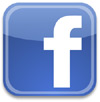Once upon a time, not so long ago, MySpace was the top social network in the land. Eventually, Facebook took over that role, and has not looked back since. Earlier this year, the company announced that it had over 400 million users, then at its developer conference, Facebook made what could be considered its biggest announcement ever – the Open Graph. Since then, despite a growing amount of interest and discussion around whether or not people should delete their Facebook profiles, Facebook is reportedly just growing and growing.
 Facebook is expected to close in on 500 million users next month, and as this Open Graph continues to grow (which it will – a lot), we may see that number rise faster than ever. Unless – all of this negative publicity the company is presently experiencing actually does catch up with it and people do turn elsewhere.
Facebook is expected to close in on 500 million users next month, and as this Open Graph continues to grow (which it will – a lot), we may see that number rise faster than ever. Unless – all of this negative publicity the company is presently experiencing actually does catch up with it and people do turn elsewhere.
MySpace is no doubt hoping to gain back some momentum from Facebook’s woes, Twitter is certainly a popular option, and growing itself. Google Buzz is still the new kid on the block, but none of these have captured user attention quite like Facebook, and none of them have found such a brilliant way to infiltrate more and more of users’ time spent online as Facebook has.
Facebook has survived user backlash in the past, and it most likely will again, but privacy stuff really freaks people out, and whether or not blaming Facebook for any privacy issues is justified (it can and has been argued that you are really the one responsible for your online privacy), there are parties rushing to offer alternatives, and you can bet that there will be plenty more.
Facebook has already changed the Internet, and many expect it to turn online advertising on its ear as well. While Facebook users go around liking everything all over the web from a growing number of sites that implement its plugins, they are giving Facebook more and more power for the potential targeting of advertising that is truly targeted at them through things that they really do like.
The Like button is a game changer because all of a sudden you have the whole world wide web of content to "like" not just what’s within your immediate network within Facebook and what you may have taken the time to add to your profile two years ago. It keeps user interests current and enables an infinite amount of interest indication that advertisers would salivate for.
Facebook could challenge Google’s AdSense if they were to release a product for publishers to implement Facebook ads into their sites. And these would be the kinds of ads that users wouldn’t be as quick to ignore. In fact, they might even be welcomed with open arms. An ad that is truly relevant is useful to the consumer. And this gives users more reason to keep "liking".
It won’t work without the users though. If Facebook loses a lot of users, it won’t be quite as attractive to advertisers, but there is nothing indicating that this will happen, despite all of the commentary out there. Facebook is growing. People have already invested a lot of their time and web presence into Facebook, and it this point Facebook is just making it harder and harder to leave as it gets tied into more elements of users’ complete online experience. A lot of the people who have talked about deleting their FB profiles have even found it too hard to actually go through with it.
You might have Diaspora and others come along and try to open things up, but at this point, can Facebook really be replaced? 500 million users. To put that in perspective, the U.S. Census Bureau has 309,293,729 for the total U.S. population. They’ve got the world at 6,821,567,786. Facebook is hardly slowing so far.
Can Facebook really be replaced as THE social network? Tell us what you think.







 WebProNews is an iEntry Publication
WebProNews is an iEntry Publication